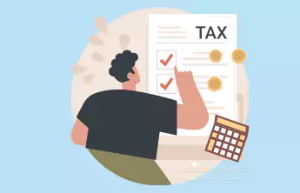Get Started With Financial Investments
Blog Title
1523 |
11/1/18 9:06 AM |
Purab recently joined a marketing firm with a good package.
One month after receiving his salary, Alvira his elder sister questioned him about his life goals. But Purab was still not in a position to understand his life goals.
“Where should I invest my money?” Purab asked in a confused tone.
“Do you have any life goals in mind for these investments, Purab?”
“Life Goals?”
“Yes Purab. Decide your life goals first and the time horizon you need to achieve them. Basis the same, you can select the best investment plan for you.”
“Thanks, I will think about my life goals. But can you please guide me where I can invest my money?”
Alvira replied,“Yes of course. As a young investor, you may be genuinely confused about how to deal with your cash when you finally venture out into the real world. If you feel that an understanding of personal finances can be stressful and difficult, you’re not right. All it takes to begin in this field is the eagerness to learn the right ways of managing your wealth. And yes, you need not be good at mathematics—as investment plans do not require too many calculations on your part—they can all be left in the hands of experts who serve to address your cause the right way.
After you’ve read a couple of personal finance books, you’ll acknowledge that your cost of living isn’t surpassing your wage. The most ideal approach to do this is by planning. When you perceive how your morning coffee chips off your savings throughout the span of a month, you’ll understand that making little, reasonable changes in your ordinary costs can have a large effect on your budgetary circumstances, similar to getting a raise. Moreover, keeping your recurring month to month costs as low as possible would be a prudent decision too, especially if you want to save enough money by the month’s end. On the off chance that you don’t squander your cash on an elegant condo now, you may have the capacity to bear the cost of a pleasant apartment suite or a house, much before you know it.”
One of individual fund’s oft-rehashed mantras is “pay yourself first”. Regardless of the extent to which you owe in different loans, or how low your compensation may appear, it’s insightful to discover some sum any sum of cash in your financial plan, so as to spare something for a backup stash consistently.
Having cash in reserve funds, to use in times of crisis, can truly keep you out of inconvenience fiscally and help you rest better during the evenings. Likewise, in the event that you get into the propensity for sparing cash and treating it as a non-debatable month to month “cost”, you’ll have more than required crisis cash set aside really soon: you’ll have retirement cash, excursion cash and even cash for an initial home instalment.
You are in your late 30’s and so you have to plan for your retirement now. Looking at the impact that compound interest can have over a long period of time, the sooner you begin, the less you’ll need to contribute to wind up with the sum that you would like to have in your account when you retire. If you start investing in Unit Linked Insurance Plans, well ahead of time then by the time you retire, you’ll be in a position to call your income-facilitation mode an “alternative”, instead of a “need”.
Purab agreed with Alvira and decided on identifying his life goals and investing in ULIPs to achieve his life goals.










